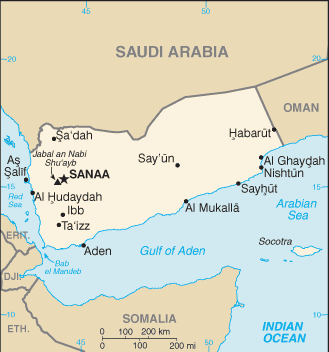The poorest nation in the Middle East, Yemen doesn’t produce a lot of its own food. Over 90 percent of the food consumed in the country, including virtually all of its wheat and rice, is imported from abroad, generally by ships.
 That’s a big problem as the Saudi war picks up pace, as Saudi and coalition warships patrol the waters around the nation, blockading ports controlled by the Houthis. Since the situation is so dangerous and quickly changing, most ships are just skipping Yemen outright.
That’s a big problem as the Saudi war picks up pace, as Saudi and coalition warships patrol the waters around the nation, blockading ports controlled by the Houthis. Since the situation is so dangerous and quickly changing, most ships are just skipping Yemen outright.
Food prices are already rising dramatically, and a lot of shops are running short on supplies at any price. Locals are desperately trying to stockpile, fearing a long war and the lack of either commercial or humanitarian shipments from the outside world.
Several major container shipping lines have confirmed they are suspending all shipments to Yemen, fearing for the safety of their vessels. Aid groups are trying to get into the country, but the Red Cross in particular has been struggling to get Saudi permission to do so.
While there was a fair amount of food already in the country when the war began, shipments of petroleum were similarly halted, and most gas stations nationwide are already out, with no hope of additional supplies any time soon.


